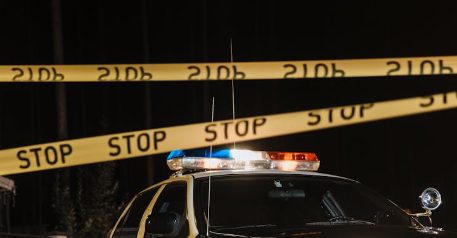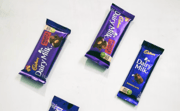‘Our human rights will be denied’: Could this law lead to unequal policing?
By
Maan
- Replies 22
Proposals around law enforcement can often stir debate—especially when past injustices are still fresh in the public memory.
A recent policy consideration in Queensland has reignited concerns among community leaders and civil rights advocates.
What’s at stake goes far beyond policing powers.
A controversial proposal in Queensland has sparked fresh outrage among Indigenous leaders and civil liberties advocates, who fear it could reignite a dark chapter in the state’s policing history.
Less than a year after Queensland decriminalised public drunkenness, the state government signalled it was reconsidering the move—a shift critics warned would once again put marginalised communities in the crosshairs.
Queensland Police Minister Dan Purdie defended the potential reversal, claiming that police had been ‘hamstrung’ by the previous Labor government’s decision.
‘The Crisafulli government is listening to communities who are alarmed that Labor’s watering down of the laws has led to more anti-social behaviour and crime on our streets,’ Mr Purdie said.
‘Our government is working with the Queensland Police Service to ensure they have the laws and resources they need to keep people safe.’
But for many Indigenous voices, the proposal raised red flags.
At a snap community meeting in Brisbane’s Musgrave Park, elders and advocates gathered at Jagera Hall to express deep concern. The potential reintroduction of these laws, they said, would amount to ‘open season’ for racial profiling by police.
Brisbane Murri Action Group organiser Adrian Burragubba warned that laws targeting public drunkenness had historically been applied unequally, often giving police excessive discretion.
‘We feel like we’ve been criminalised, stereotyped, marginalised, and picked on by the police when they’ve been given too much power,’ Mr Burragubba said.
He pointed out that police had rarely enforced such laws in nightlife hotspots like Fortitude Valley or Surfers Paradise—areas known for rowdy partygoers—but had disproportionately targeted Aboriginal and homeless people.
‘These laws will criminalise our people again and our human rights will be denied, as the Royal Commission into Aboriginal Deaths in Custody found over 30 years ago,’ he added.
The 1991 Royal Commission recommended that public drunkenness be treated as a health issue rather than a criminal offence. Despite this, Queensland had only removed the offence in late 2024—making it the last state to do so.
Reinstating the law now would undo that progress, said Queensland Council for Civil Liberties president Michael Cope.
‘Alcoholism and alcohol abuse should be dealt with via health and social support systems, rather than in the criminal justice system,’ Mr Cope said.
‘The offence of public drunkenness effectively criminalises poverty and has a disparate application to Indigenous peoples.’
He also pointed out that police already had powers to detain individuals if they were violent, threatening, or posed a safety risk.
Marjorie Nuggins, who also spoke at the meeting, shared fears that criminalising public intoxication would unfairly target homeless people rather than addressing root causes.
‘I believe the Indigenous custodial people of this land need to make a stand now,’ she said.
‘There’re so many injustices going on around this place.’
‘It needs to stop and we need to come together in unity and love.’

With Queensland’s laws potentially taking a step backwards, many are wondering what real progress looks like after decades of hard-won change. Do you think returning to old policing powers will do more harm than good? Let us know your thoughts in the comments.
In a previous story, we looked at new legislation that could see Australians fined up to $55,000 for making racist remarks—a sign that attitudes toward discrimination are shifting in serious legal ways.
For many seniors who’ve witnessed decades of change, it’s a stark reminder of how far society has come—and how far we still have to go.
If you're interested in how these developments connect with broader concerns around fairness and justice, it’s worth a look.
Read more: Racist remarks could land you a fine of up to $55,000—learn more about the latest legislation now
A recent policy consideration in Queensland has reignited concerns among community leaders and civil rights advocates.
What’s at stake goes far beyond policing powers.
A controversial proposal in Queensland has sparked fresh outrage among Indigenous leaders and civil liberties advocates, who fear it could reignite a dark chapter in the state’s policing history.
Less than a year after Queensland decriminalised public drunkenness, the state government signalled it was reconsidering the move—a shift critics warned would once again put marginalised communities in the crosshairs.
Queensland Police Minister Dan Purdie defended the potential reversal, claiming that police had been ‘hamstrung’ by the previous Labor government’s decision.
‘The Crisafulli government is listening to communities who are alarmed that Labor’s watering down of the laws has led to more anti-social behaviour and crime on our streets,’ Mr Purdie said.
‘Our government is working with the Queensland Police Service to ensure they have the laws and resources they need to keep people safe.’
But for many Indigenous voices, the proposal raised red flags.
At a snap community meeting in Brisbane’s Musgrave Park, elders and advocates gathered at Jagera Hall to express deep concern. The potential reintroduction of these laws, they said, would amount to ‘open season’ for racial profiling by police.
Brisbane Murri Action Group organiser Adrian Burragubba warned that laws targeting public drunkenness had historically been applied unequally, often giving police excessive discretion.
‘We feel like we’ve been criminalised, stereotyped, marginalised, and picked on by the police when they’ve been given too much power,’ Mr Burragubba said.
He pointed out that police had rarely enforced such laws in nightlife hotspots like Fortitude Valley or Surfers Paradise—areas known for rowdy partygoers—but had disproportionately targeted Aboriginal and homeless people.
‘These laws will criminalise our people again and our human rights will be denied, as the Royal Commission into Aboriginal Deaths in Custody found over 30 years ago,’ he added.
The 1991 Royal Commission recommended that public drunkenness be treated as a health issue rather than a criminal offence. Despite this, Queensland had only removed the offence in late 2024—making it the last state to do so.
Reinstating the law now would undo that progress, said Queensland Council for Civil Liberties president Michael Cope.
‘Alcoholism and alcohol abuse should be dealt with via health and social support systems, rather than in the criminal justice system,’ Mr Cope said.
‘The offence of public drunkenness effectively criminalises poverty and has a disparate application to Indigenous peoples.’
He also pointed out that police already had powers to detain individuals if they were violent, threatening, or posed a safety risk.
Marjorie Nuggins, who also spoke at the meeting, shared fears that criminalising public intoxication would unfairly target homeless people rather than addressing root causes.
‘I believe the Indigenous custodial people of this land need to make a stand now,’ she said.
‘There’re so many injustices going on around this place.’
‘It needs to stop and we need to come together in unity and love.’
Key Takeaways
- Queensland may recriminalise public drunkenness less than a year after decriminalising it, prompting backlash.
- Indigenous leaders warned the change would allow police to racially profile Aboriginal and homeless communities.
- Critics said the laws had historically been applied unequally and ignored recommendations from the 1991 Royal Commission.
- Advocates argued alcoholism should be treated as a health issue, not a criminal matter.
With Queensland’s laws potentially taking a step backwards, many are wondering what real progress looks like after decades of hard-won change. Do you think returning to old policing powers will do more harm than good? Let us know your thoughts in the comments.
In a previous story, we looked at new legislation that could see Australians fined up to $55,000 for making racist remarks—a sign that attitudes toward discrimination are shifting in serious legal ways.
For many seniors who’ve witnessed decades of change, it’s a stark reminder of how far society has come—and how far we still have to go.
If you're interested in how these developments connect with broader concerns around fairness and justice, it’s worth a look.
Read more: Racist remarks could land you a fine of up to $55,000—learn more about the latest legislation now








